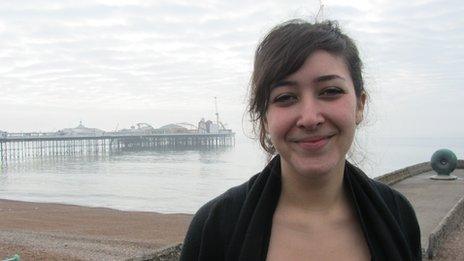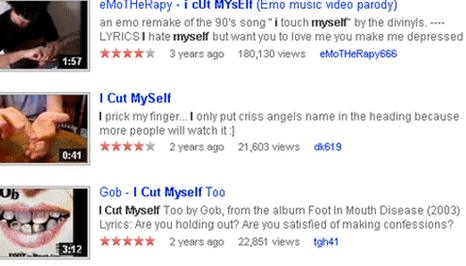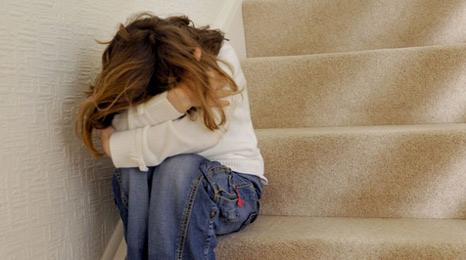Tumblr to ban self-harm and eating disorder blogs
- Published

Hannah, who has recovered from anorexia, is backing the ban
The blogging website Tumblr has started banning blogs that encourage self-harm, anorexia and bulimia.
Until now the site, which claims to have up to eight million UK users, had allowed users to post any images, videos and comments on the subjects.
Eating disorder campaigners have welcomed the change but some Tumblr users claim blogs are a form of therapy.
Get information on eating disorders and self harm from Radio 1's Surgery.
'Positive first step'
Mark Coatney from Tumblr said he expected several thousand pages would be removed.
Hannah, who suffered from anorexia, gives her reaction to the ban
"This is not a good thing for our community and we are taking steps to correct that. "
He also said the company wanted to provide healthy support to users by linking to official organisations that would help them.
"When people search for certain tags such as 'pro ana,' we are going to include messages about why this is harmful and suggest where they can go for resources to help them out."
He added there was no way of removing all mention of the topics from the site, and that only a "core" of blogs would be targeted.
The chief executive of the eating disorder charity Beat, Susan Ringwood, described the move as "a very positive first step" and urged other sites to take similar action.
Two years ago, doctors told Newsbeat they were worried about the number of videos promoting self-harm and cutting, which had been uploaded to sites like YouTube.
Susan Ringwood said some young people struggling with eating disorders had complained to Beat about Tumblr.
"It is a visual site and that is what is so concerning, when some of those images may be encouraging people to damage their health and do things that are very harmful.
"These images don't cause eating disorders by themselves but people who have already this serious problems can make it harder for people to recover."
An online petition to try to stop Tumblr removing blogs has been signed by more than 1,600 people.
It reads: "We simply post this content because it is an accurate representation of our own thoughts and feelings that we would not otherwise be able to express: to us it is a form of therapy."
- Published26 March 2012

- Published12 March 2010
